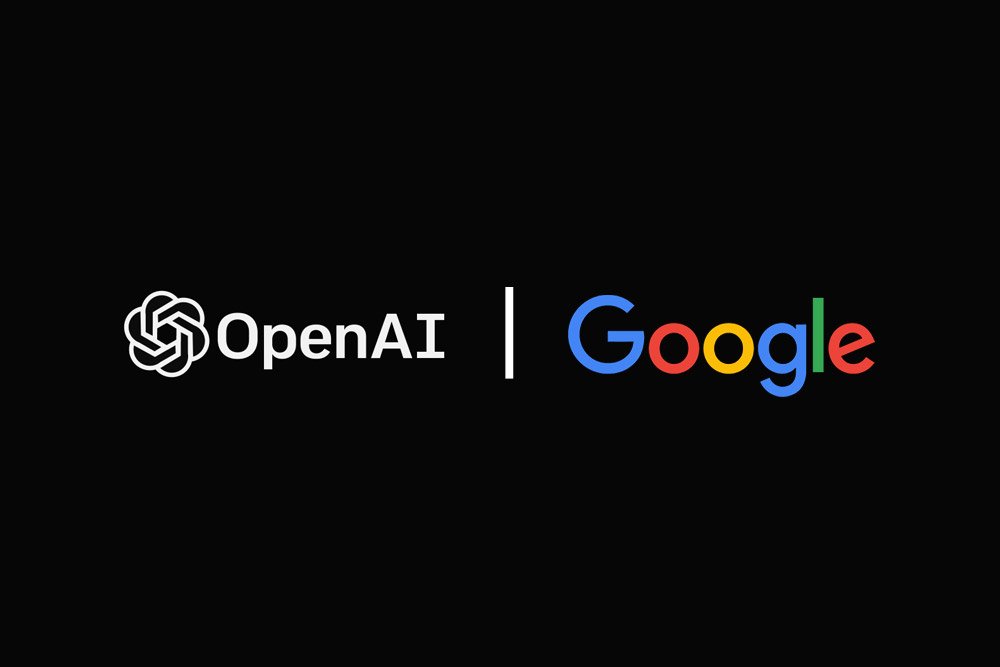
In the rapidly moving landscape of AI, two giants stand tall, and the future of this transformative technology is assured to be shaped under them. OpenAI and Google, both powerhouses in their own right, have molded as fierce competitors, each ambitious for dominance in the AI arena. As these tech mammoth continue to drive the boundaries of what’s possible, the world watches with low breath, anticipating the next groundbreaking innovation that will redefine our understanding of AI. Now, let’s see whether OpenAI or Google going to dominate the future.
Understanding OpenAI
OpenAI, a non-profit AI research company founded in 2015, has been at the forefront of AI development. It has gathered widespread attention for its cutting-edge research and groundbreaking models.
The GPT language model has revolutionized the field of natural language processing. GPT-4, the latest iteration, has proved remarkable capabilities in understanding and generating human-like text, setting new benchmarks for AI language models.
Another significant contribution from OpenAI is the DALL-E image generation model, which has captivated the world with its ability to create stunning and imaginative images from textual descriptions.
Exploring Google’s AI Ventures
Google – a tech mammoth known for its dominant search engine and a plethora of innovative products and services. With its vast resources and front-line research facilities, Google has made significant gains in advancing AI technologies across multiple domains.
One of Google’s most notable AI projects is the development of the Transformer model, which has been instrumental in natural language processing tasks. Google’s Transformer model has been widely adopted and has served as the foundation for many subsequent language models, including those developed by OpenAI.
Google’s AI prowess extends beyond language models, with the company making significant contributions in areas such as computer vision, robotics, and healthcare. For instance, Google’s DeepMind division has developed advanced AI systems for playing complex games like Go and chess, as well as for applications in fields like protein folding and energy optimization.
Key Technologies and Projects: OpenAI versus Google
As the competition between OpenAI and Google deepens, both companies are continuously pushing the boundaries of AI with their respective technologies and projects.
- Language Models: OpenAI’s GPT series and Google’s Transformer models have set new benchmarks in natural language processing, enabling more human-like communication and understanding.
- Image Generation: OpenAI’s DALL-E and Google’s Imagen have demonstrated impressive capabilities in generating high-quality images from textual descriptions, opening up new possibilities in creative fields.
- Reinforcement Learning: Both companies have made significant advancements in reinforcement learning, with OpenAI’s Dota 2 AI and Google’s AlphaGo demonstrating the potential of AI in mastering complex tasks and games.
- Robotics and Automation: Google’s Boston Dynamics and OpenAI’s research in robotic manipulation and control showcase the companies’ ambitions in developing advanced robotic systems.
- Healthcare and Life Sciences: Google’s DeepMind division and OpenAI’s collaborations with research institutions have explored the potential of AI in areas such as drug discovery, disease diagnosis, and protein structure prediction.
Market Influence and Financial Power
- OpenAI’s Funding and Partnerships: OpenAI has secured significant funding from prominent investors, including Microsoft, which has invested $1 billion in the company. Additionally, OpenAI has formed strategic partnerships with organizations like the University of California, Berkeley, and the Massachusetts Institute of Technology (MIT), leveraging their research expertise and resources.
- Google’s Deep Pockets and Acquisitions: As a tech giant with vast financial resources, Google has the advantage of substantial capital to invest in AI research and development. The company has also acquired several AI startups, such as DeepMind and Kaggle, further bolstering its AI capabilities.
- Talent Acquisition and Retention: Both OpenAI and Google are engaged in an intense battle to attract and retain top AI talent. The ability to assemble world-class teams of researchers, engineers, and data scientists is crucial for maintaining a competitive edge in the AI race.
- Intellectual Property and Patents: The ownership of intellectual property and patents related to AI technologies is a critical factor in determining market dominance. Both companies have filed numerous patents and are actively protecting their innovative solutions.
The Beginning of Competition
The competition between OpenAI and Google in the AI realm has been brewing for several years, with both companies vying for talent, resources, and technological supremacy. As the race intensifies, it’s becoming increasingly clear that the winner of this AI showdown will likely shape the future of numerous industries and potentially impact society as a whole.
One of the key factors driving this competition is the immense potential of AI to disrupt and transform various sectors. Both OpenAI and Google recognize the vast opportunities that lie ahead, and they are investing heavily in research, development, and talent acquisition to gain a competitive edge.
Collaborations and Competitions: The Ongoing Battle
- Open-Source Contributions: OpenAI and Google have both embraced open-source practices, releasing their models and research findings to the broader AI community. This approach fosters collaboration and accelerates progress, but it also exposes their technologies to potential competitors.
- Industry Partnerships and Collaborations: Both companies have formed strategic partnerships with various industries, including healthcare, finance, and automotive, to explore and develop AI solutions tailored to specific needs.
- Academic Collaborations: OpenAI and Google have established strong ties with academic institutions, collaborating on research projects and providing funding for AI-related initiatives. These collaborations foster innovation and help attract top talent.
- Competitions and Challenges: To push the boundaries of AI, both companies have organized and participated in various AI challenges and competitions, such as the Dota 2 AI competition and the ImageNet challenge. These events serve as testing grounds for their AI systems and foster healthy competition within the AI community.
Who Will Lead the AI Revolution?
While both OpenAI and Google have made significant contributions to the field of AI, many experts believe that OpenAI’s singular focus on AI research and its mission to ensure the safe and beneficial development of AI systems give it a distinct advantage. OpenAI’s cutting-edge language models, like GPT-4, and its groundbreaking image generation capabilities, exemplified by DALL-E, have demonstrated the company’s ability to reach and break those boundaries with AI.
Moreover, OpenAI’s non-profit structure and commitment to open-source principles have fostered a collaborative environment that encourages innovation and knowledge-sharing within the AI community. This approach has attracted top talent and facilitated partnerships with leading academic institutions, further accelerating the pace of AI research and development. While Google undoubtedly possesses vast resources and has made significant steps in various AI domains.
Ultimately, the race between OpenAI and Google in the AI arena is far from over, and both companies will continue to shape the future. However, OpenAI’s singular focus, commitment to ethical AI development, and groundbreaking innovations position it as a leader in leading the AI revolution.
The battle between OpenAI and Google for AI supremacy is heating up, with both companies pushing the boundaries of what’s possible with this transformative technology. From language models and image generation to robotics and healthcare applications, these giants are leaving no stone unturned in their quest for dominance.
As the competition intensifies, the world watches with anticipation, eager to witness the next groundbreaking innovation that will shape the future of AI. Whether it’s OpenAI’s cutting-edge language models or Google’s prowess in computer vision and robotics, the impact of their advancements will be felt across the tech world. However, Experts think OpenAI has an edge in the AI battlefield.


